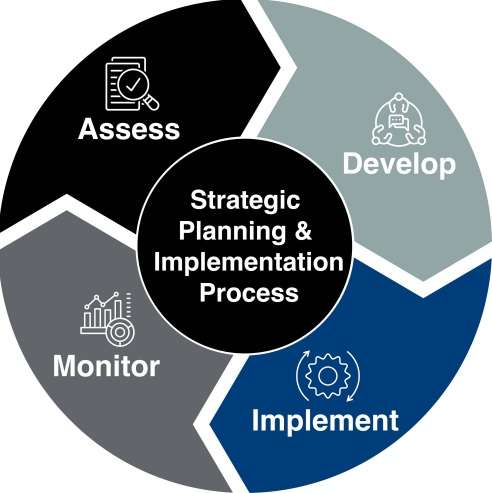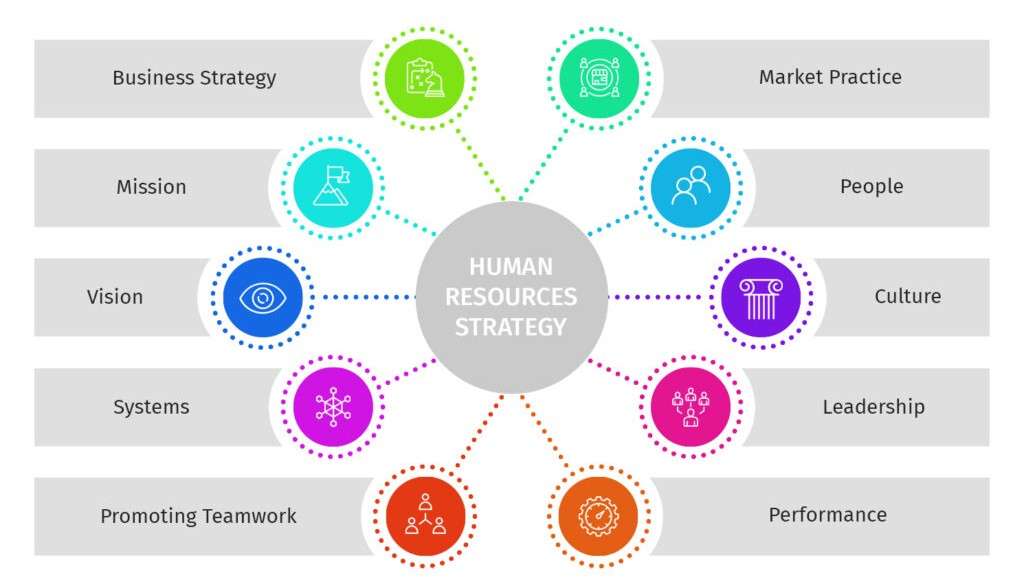
- Introduction to the Role of a General Manager
- Strategic Planning Responsibilities
- Overseeing Operations
- Managing Budgets
- Human Resources Management
- Marketing and Sales Oversight
- Business Development Duties
- Risk Management
Introduction to the Role of a General Manager
The role of a General Manager (GM) is pivotal in ensuring the smooth and profitable operation of a business. Acting as the bridge between executive leadership and operational teams, the General Manager is responsible for overseeing daily business activities, formulating strategic goals, and aligning company objectives with team performance. A successful GM demonstrates strong leadership, decision-making, and problem-solving skills, enabling them to manage cross-functional teams and adapt to changing business environments. In addition to leading and motivating staff, they are also involved in budgeting, forecasting, and evaluating company performance to ensure efficiency and profitability. The scope of General Manager roles and responsibilities spans across managing operations, implementing company policies, driving growth initiatives, and maintaining high levels of customer satisfaction. They play a key role in developing business strategies, optimizing resource allocation, and ensuring compliance with legal and ethical standards. A General Manager must also have a deep understanding of market trends and competitor strategies to keep the organization ahead in the industry. Whether in hospitality, manufacturing, retail, or services, GMs are instrumental in shaping the company’s future by translating vision into actionable plans. Their leadership is critical in maintaining organizational health, culture, and long-term success.
Strategic Planning Responsibilities
- Define Long-Term Objectives: Establish clear, measurable goals aligned with the company’s mission to drive future success and organizational growth.
- Conduct Market Analysis: Evaluate industry trends, competitor strategies, and customer needs to identify opportunities and threats, aiding in business development.
- Allocate Resources Efficiently: Optimize the use of financial, human, and operational resources to support strategic priorities and maximize returns.
Strategic planning is a core function of a General Manager, enabling long-term business success by setting clear goals, analyzing market conditions, and aligning resources effectively. Through thoughtful planning, a General Manager ensures that the organization remains competitive, agile, and focused on sustainable growth.

- Develop Actionable Strategies: Translate high-level business goals into practical initiatives and timelines to ensure focused execution and progress tracking.
- Evaluate Performance Metrics: Implement performance monitoring systems to assess the effectiveness of strategic plans and make data-driven adjustments.
- Foster Cross-Department Collaboration: Promote collaboration among departments to ensure strategic alignment and unified efforts across all business units.
Overseeing Operations
Overseeing operations is a fundamental responsibility of a General Manager, involving the supervision of daily activities to ensure efficiency, productivity, and alignment with strategic goals. This role requires a hands-on approach to managing various departments, including sales, marketing, finance, human resources, and customer service while maintaining smooth workflow across all functions. A General Manager must monitor key performance indicators (KPIs), enforce company policies, and implement standard operating procedures (SOPs) to ensure consistent quality and operational excellence. Tools like HRMS (Human Resource Management System) play a vital role in streamlining employee management, tracking performance, and improving workforce planning. They are tasked with identifying inefficiencies, resolving bottlenecks, and improving processes to reduce costs and enhance overall performance. Communication plays a critical role, as the GM must ensure that staff are well-informed, motivated, and working towards common objectives. Additionally, they must manage vendor relationships, oversee inventory and supply chain logistics, and ensure compliance with safety regulations and legal standards. With the help of HRMS, General Managers can maintain accurate employee records, facilitate onboarding, and manage payroll more effectively. Technology integration, including HRMS solutions, and data-driven decision-making are essential components in streamlining operations and driving continuous improvement. This operational leadership supports long-term sustainability, profitability, and business growth in a competitive landscape.
Managing Budgets
- Create Annual Budgets: Develop comprehensive yearly budgets in collaboration with department heads to align with organizational objectives and forecasted revenues.
- Monitor Financial Performance: Regularly review income statements, balance sheets, and cash flow reports to ensure spending aligns with the approved budget.
- Control Operational Costs: Identify areas of overspending or inefficiencies and implement cost-saving measures to maintain profitability without compromising quality.
- Allocate Resources Strategically: Distribute funds across departments and projects based on priorities, expected ROI, and business needs.
- Prepare Financial Reports: Generate accurate and timely financial reports for executive leadership to support transparency and strategic planning.
- Adjust Budgets as Needed: Reforecast and revise budgets in response to market changes, unexpected expenses, or new business opportunities to maintain financial stability.
- Develop Marketing Strategies: Collaborate with the marketing team to create data-driven campaigns that promote brand awareness and support product or service growth.
- Set Sales Targets: Establish clear, realistic sales goals and ensure teams have the tools and motivation needed to meet or exceed them.
- Monitor Campaign Performance: Evaluate the effectiveness of marketing efforts through metrics like ROI, customer engagement, and lead conversion rates.
- Align Sales and Marketing Teams: Facilitate strong communication between marketing and sales departments to ensure cohesive strategies and consistent messaging.
- Oversee Customer Relationship Management (CRM): Utilize CRM systems to track customer interactions, manage leads, and personalize communication for better customer retention.
- Analyze Market Trends and Competitors: Stay informed about industry changes and competitor strategies to adapt marketing and sales plans for sustained business advantage.
Managing budgets is a critical function of a General Manager, directly influencing the financial health and sustainability of an organization. It involves planning, monitoring, and controlling financial resources to ensure that all departments operate within allocated limits while supporting business goals. Effective budget management enables informed decision-making, cost efficiency, and strategic investment.
Human Resources Management
Human Resources Management is a vital aspect of a General Manager’s role, focusing on building, developing, and maintaining a productive and motivated workforce. It involves overseeing all HR functions, including recruitment, onboarding, training, performance management, employee relations, and compliance with labor laws. A General Manager plays a key role in shaping the company culture by implementing fair HR policies, fostering open communication, and encouraging employee engagement. By working closely with HR teams, the GM ensures that the right talent is hired and retained to meet organizational goals. They are also responsible for evaluating employee performance, setting clear expectations, and facilitating career development opportunities to improve productivity and job satisfaction. Conflict resolution, workplace safety, and diversity and inclusion are also important elements under human resources management that fall within the GM’s oversight. Additionally, the use of HR technology, such as Human Resource Management Systems (HRMS), helps streamline administrative tasks, monitor workforce metrics, and enhance decision-making. By managing human resources effectively, a General Manager ensures that the organization not only complies with legal standards but also creates a positive, high-performing workplace that supports long-term business success and employee well-being.

Marketing and Sales Oversight
Marketing and sales oversight is a crucial responsibility of a General Manager, aimed at driving revenue growth, expanding market presence, and ensuring alignment between promotional strategies and business objectives. By supervising marketing initiatives and sales performance, the GM helps the organization reach its target audience effectively and convert leads into loyal customers.
Business Development Duties
Business development duties are essential to a General Manager’s role, as they focus on identifying growth opportunities, building strategic partnerships, and expanding the company’s market reach. As part of the Key General Manager Roles & Responsibilities, these duties involve analyzing market trends, customer needs, and competitor strategies to uncover new avenues for revenue generation. A General Manager must work closely with sales, marketing, and product teams to develop and implement initiatives that drive business expansion. This includes exploring new markets, launching new products or services, and nurturing relationships with key clients and stakeholders. Effective business development also requires negotiating deals, attending industry events, and fostering collaboration with potential partners to create mutually beneficial opportunities. In addition, managing financial aspects such as budgeting and personal expense management ensures responsible use of company resources during business development activities, especially when traveling or entertaining clients. Among the Key General Manager Roles & Responsibilities is the ability to evaluate the feasibility and ROI of each opportunity, ensuring that it aligns with the company’s long-term strategic goals. Strong communication, networking, and analytical skills are critical in executing successful business development strategies. By proactively driving growth initiatives and maintaining oversight of costs through practices like personal expense management, the General Manager helps ensure the organization stays competitive, innovative, and financially healthy in a dynamic market environment.
Risk Management
Risk management is a crucial responsibility of a General Manager, focusing on identifying, assessing, and mitigating potential risks that could impact the organization’s operations, financial stability, and reputation. This involves a comprehensive approach, from evaluating market fluctuations, regulatory changes, and competitive threats to internal risks such as operational inefficiencies or security vulnerabilities. A General Manager must establish proactive strategies to minimize risk exposure, implement effective control measures, and continuously monitor risk indicators to ensure business continuity. Additionally, risk management extends to financial oversight, where the General Manager must ensure that spending is aligned with the company’s objectives while safeguarding resources. This includes practices like personal expense management, where employees are encouraged to be mindful of their spending habits, and unnecessary expenses are minimized. By fostering a culture of risk awareness and encouraging adherence to company policies, the General Manager can mitigate both short-term and long-term risks. Moreover, they must work with legal and compliance teams to ensure all regulations are followed, reducing the likelihood of legal issues. Through comprehensive risk management, a General Manager ensures that the organization is prepared for uncertainties, minimizes potential losses, and is positioned for sustainable growth in a competitive landscape.

